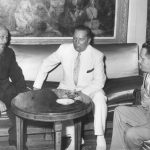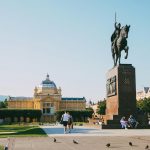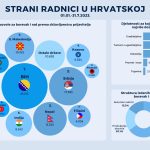I am pleased to extend an incredibly interesting interview with one very talented Croatian American filmmaker, Nikola Knez and the focus of this article is about his new documentary ”Bleiburg: Tito’s License for Genocide.” I must share that this is a very in-depth interview and story because of the seriousness of this documentary and work that Nikola Knez has embraced with his spouse, Dr. Dorothy McClellan, who did the screenplay.
First, let me share the most important details and a synopsis of this film about what is known as the Bleiburg Massacre and Operation Slaughterhouse.
In 1945, just a few days after the end of World War II, Tito and his Partisans initiated an extermination campaign against men, women, and children they viewed as enemies of the regime. The mass slaughter began with the forced repatriation of 700,000 civilians and soldiers who fled Croatia and Slovenia seeking asylum in Austria immediately at the close of the war. The refugees, deceived by the British into believing they would be provided with a safe haven by the Americans in Italy, instead were loaded onto trains and sent back to Yugoslavia. Large numbers were massacred outright, others died on forced death marches and in mass executions across the country.
Through filmed interviews with survivors, confessed perpetrators, British officers, military intelligence officials, and scholars, as well as through the analysis of historical documents and newly released evidence of mass graves, the film traces the violations of the Geneva Conventions and international law that resulted in what has come to be known as The Bleiburg Massacre. Through analysis of historical documents, newly released evidence of mass graves, and interviews with survivors, witnesses, confessed perpetrators, military officials and scholars, the film examines the atrocities in the context of international human rights law, with discussion of subsequent promulgation of protocols for the protection of refugees, asylum seekers, and prisoners of war from crimes against humanity and genocide.
This film examines the long-term challenges to democratic nation building that have resulted from the forced repatriation of hundreds of thousands of Croatian civilians and military personnel to Yugoslavia at the end of World War II. Data suggest that violations of the Geneva Conventions led to the death of many of these asylum seekers at the hands of Tito’s Partisans in both death marches and in mass executions.
The following is my interview conducted the week of April the 9th with film maker, Nikola Knez.
How did this film project come to you and what were the key developments?
In 1991, my cousin and I started the production of a documentary film about Jazovka, at that time, it was the only place of mass killing that I knew existed. It was a difficult time to start such a project, but we wanted to contribute to the fight for the Independence of Croatia with the telling of a true story. The film was never shown on Croatian National TV. It was banned. Since the war was beginning, it was necessary to move forward. A few years ago, when I heard about Huda Jama in Slovenia, I was shocked. The recollection of Jazovka came back to me. I began to wonder about a certain rule of human behaviour, that if there are two occurrences, there might be more, and a pattern might emerge. Searching led me to Dr. Jože Dežman, and Roman Leljak. I found other key sources of information in foreign libraries, private archives, academic publications, and books. Thorough research was crucial to building a full picture. However, the truth was well hidden, the rule of silence prevailed. As is often the case, people knew but for many reasons did not talk about it. As the truth emerged, it became alarmingly apparent that an enormous number of Croatians and Slovenians were sacrificed. The rule of law and justice had failed them. Barbarism prevailed.
I wanted to show the clear, uninterrupted line of crime that extended from the creation of Yugoslavia to its dissolution, and ended with the murder of civilians in Ovčara, the destruction of Vukovar, and the genocide in Srebrenica.
The film premiered in Geneva, Switzerland at the 32nd International Academic Conference of the Institute for Social and Economic Sciences in June 2017. The Fulbright Association invited us to present our research on forced repatriation at the 40th Anniversary of the Fulbright Association Conference in Washington, D.C. in November 2017. We hope that our film contributes to the work of the Platform of European Memory and Conscience in condemning communist crimes and criminals.
Please share all the key details about the involvement of Dr. Dorothy McClellan with her work with this film.
While in Croatia as a Fulbright scholar 2002-2004 and 2012, Dr. Dorothy McClellan, Regents Professor of Criminal Justice, Texas A&M University-Corpus Christi, joined with me, then as President of the Croatian Society for Children’s Human Rights to undertake a multi-faceted international collaborative project, examining challenges to democratic nation building in post-conflict society. Over the course of Dr. McClellan’s Fulbright fellowships and beyond, the focus of our work has been on the Croatian War for Independence 1991-1995 and its aftermath. We have had several academic articles published. Dr. McClellan also contributed to my films about the war, including “Sunny’s Story: Rape as an Instrument of Terror in War” and “The Doctor’s Prison Cell.” With the recent release of documents, investigative reports, and physical evidence of mass killing at the end of World War II, our examination of the challenges to democratic nation building has extended back in time to 1945. Our studies led to the latest film, ”Bleiburg: Tito’s License for Genocide”. The events addressed in this film suggest that a crisis of conscience related to post-World War II mass genocide in Slovenia, Croatia and Bosnia and Herzegovina, rarely discussed or mentioned in the literature, continues to contribute to the political, economic and moral insecurity in the region.
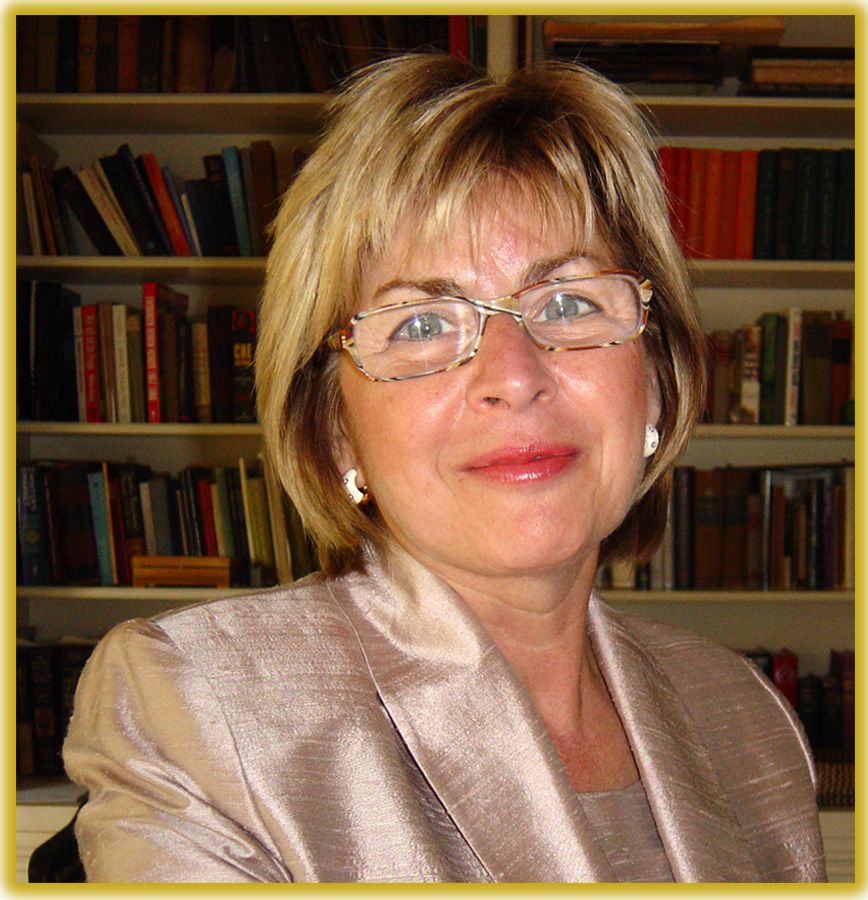
How were you so successful in tracking down and interviewing the ten plus survivors, eye witnesses and perpetrators to this tragedy?
As in all of life, serendipity and persistence bring people of like mind together. For this film we read extensively and found individuals who wanted to have the truth emerge, excellent scholars and activists who have devoted their lives to giving voice to the innocents who were tortured, terrorised and killed. Others came to our attention who carried the secrets for so long that they felt compelled to speak out in writing and interview. We were able to put these accounts together in such a way that the story is powerfully, shockingly and honestly revealed.
It was crucial to include the unique testimony of many individuals who together create a portrait of the actual events: British officers who were members of the 8th British Army stationed in Bleiburg, some of Tito’s Partisans who were repentant and remorseful about the murders, Croatian civilian survivors, historians and investigators of the crimes committed. With the newly released evidence of mass graves and historical documents, this film describes the violation of international law that led to the Bleiburg tragedy. What can be better than to let people say through their own words what they think, what they experienced, what they did. Their personal testimony speaks for itself. We believe the film is unique in this respect, and leaves little doubt about what really happened at Bleiburg and subsequent to the repatriations.
We were certainly overwhelmed by what we came to know. When we finished the film, we felt that it clarified for us many of our, until then, unanswered questions: How could it be that a country as beautiful, rich in culture, human capital, natural resources and ingenuity as Croatia have such arrested and constricted development? We came to see that the legacy of lies, deception, silence and secrecy were conspiring against the future.
It is in the interest of peace, justice, and human dignity that we offer this film. We believe that without full disclosure of the crimes and criminals, the political future of the region remains uncertain and unstable.
Please mention other individuals and groups that were a big help and invaluable to this effort.
There are many people who want the truth to be told regarding these historical events, who advocate for this noble cause. People who want to help the Croatian nation stand up, free itself from the chains of its historical prison and from the current hostile environment, and bring a sense of freedom and justice to all of us, so that Croats can live openly and thrive.
I want to thank my co-producer, Mr. Damir Rados, an extraordinary, long-standing Croatian-American supporter of scholarship, the arts, and the truth. Courageous individuals have made pursuing the evidence and telling this story their life’s work: Dr. Jože Dežman, Director of the Museum of Contemporary History of Slovenia; Dr. Mitja Ferenc, Professor of History at the University of Ljubljana; John Ivan Prcela, a survivor and renowned author of the Operation Operation Slaughterhouse; Roman Leljak; Count Nikolai Tolstoy; Dr. Ivan Lucic; Vice Vukojevic; Dr. Martin Hrgovcic; Dr. Martina Grahek-Ravancic of the Croatian Institute of History; Andy Mihaljevic; and Ante Beljo, to mention a few. Organizations and individuals who provided access to key documents include The Croatian Historical Museum, represented by the director Matea Brstilo Resetar, the Commission of the Government of the Republic of Slovenia to Resolve the Issue of Concealed Mass Graves, and the Archives of Slovenia. Mr. Michael Palaich, a great gentleman, offered his invaluable film archives. Mladen Leko, Croatian Vijest Australia, Member of the Council of the Croatian Government for Croats outside the Republic of Croatia, has encouraged us in our efforts, as have respected individuals in the U.S. including: Zora Ljoljic, Mato Miloglav, Nedjeljko Milicevic, and Milan Cvitanovic.
Please share some other highlights of your movie making career.
Since 2005, when my American filmmaking career began, I have received more than 40 film awards for directing. Each project for me is a challenge because it is new and exciting. It forces you to research, learn, understand and most importantly develop original, creative ways of presenting the story to the public. The themes of my work are broad and ranging from history, human rights, science, social life, technology, and medicine to sci-fi too. Filmmaking is a fascinating profession because you find yourself in positions and places that you can not even pay to be in. We film on a battlefield, in a factory, with President Bill Clinton, at the Pentagon, with General Wesley Clark, on the streets of Beijing, in the mountains of Alaska, in a Samurai village in Japan, with women seeking justice, with criminals in prisons, with Russian astronauts in Star City in Moscow, with international cyber security experts, with the Russian space station crew at the Johnson Space Center at NASA.
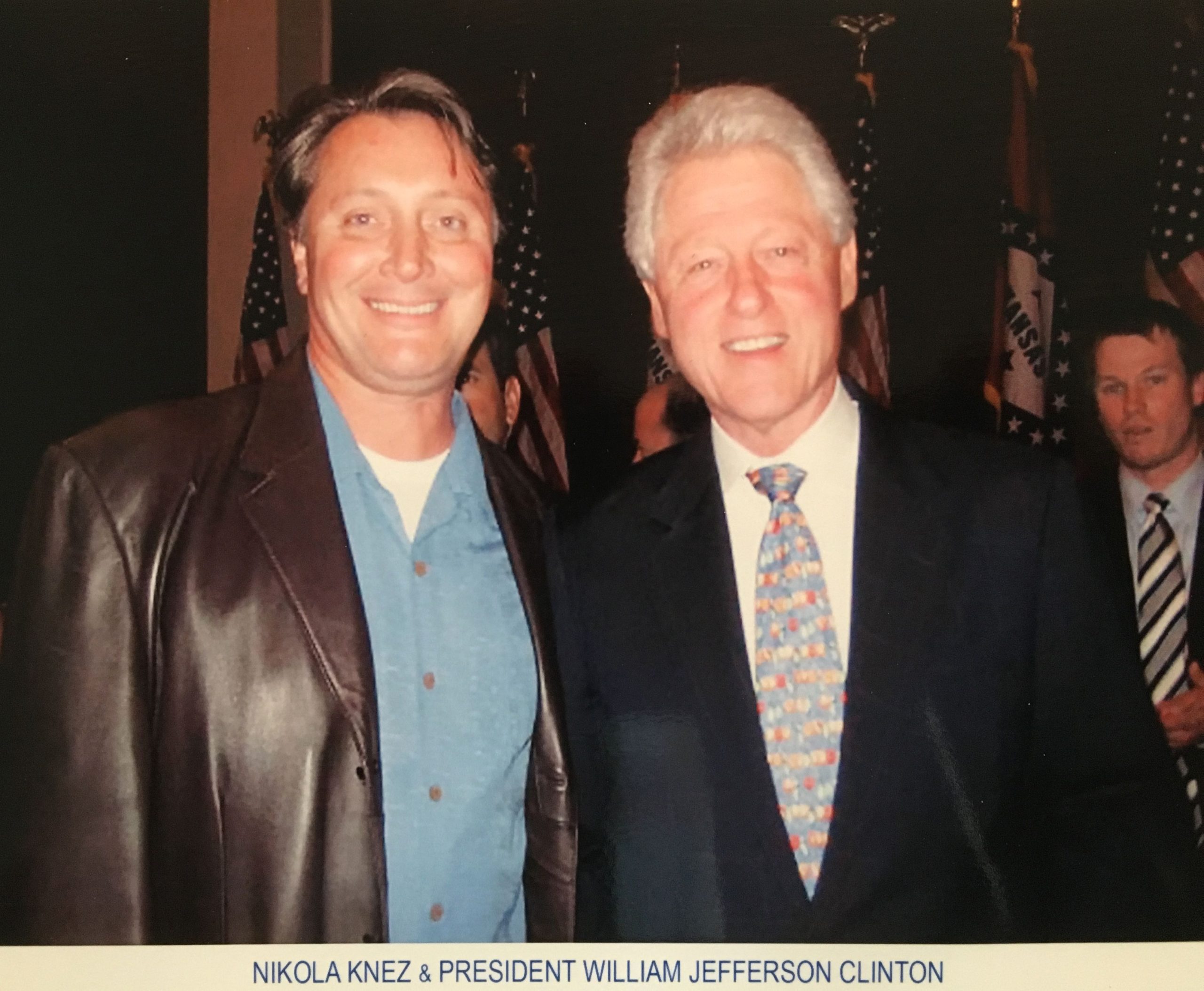
Wherever I go, I try to look beyond the mere making of the film. For example, while making a tourist movie about Island Mljet, I noticed the dilapidated monastery on a small lake, so I established the “St. Mary Foundation for the Island Mljet.” Today this foundation is under the supervision of the Bishop of Dubrovnik. The monastery is now almost completely renovated and serves as a wonderful tourist destination for Croatians and foreigners. While filming villages around Croatia, I saw that many people produced excellent products in small quantities, making it difficult to sell them. So, I opened the Croatian Society for Eco-tourism and connected it with the German state agency that for two years in a row financed sending everyone who wanted to present their products to the international Berlin Trade Fair.
While filming interviews with Croatian women raped in the war, I had the idea to present the film to the Croatian Parliament to encourage them to promulgate a law that 24 years after the war for independence, recognized these women as war victims and provided them compensation. While filming Croatian war orphans, I opened the Croatian Society for Children’s Human Rights. This led me to co-convene the 1st and 2nd International Conference on Children’s Rights & Education for the 21st Century (2005, 2006) with Texas A & M University in the USA, which brought together thousands of participants from around the world.
While filming in Croatia these past few years, I recognized the challenges faced by this industry. I founded the Croatian Film Institute so that people can have a platform from which to express their point of view regarding their own culture, to celebrate Croatian film, to make the Croatian film industry a brand. I hope to continue to pursue meaningful projects and to be seen as an honorable native child of Croatia.
Please tell us how you ended up in the USA and also some background about your Croatian roots.
I grew up in my beloved village of Legrad in Medjimurje. The rivers Mura and Drava were my soulmates. At the age of 15, we moved to Zagreb, and at age 40 came to the USA. I have lived under three political systems. I have experienced war firsthand. I was educated in communist Yugoslavia and in capitalist America, where I gained a great deal of experience. Education is just an operational manual for how tools should be used. It’s hard work to develop one’s artistic soul, one’s connection to people, visionary spirit and imagination, which together enable us to create a product. I must say that America is a country where your productive work is generally rewarded, in which a creative person is recognized. That is a unique feature compared to all countries around the world. It is essential to feel connected to one’s society. This connection elevates and liberates the human being. I have to say, my body and roots are Croatian, my spirit is American. I am very grateful for my good fortune in being indebted to both countries.
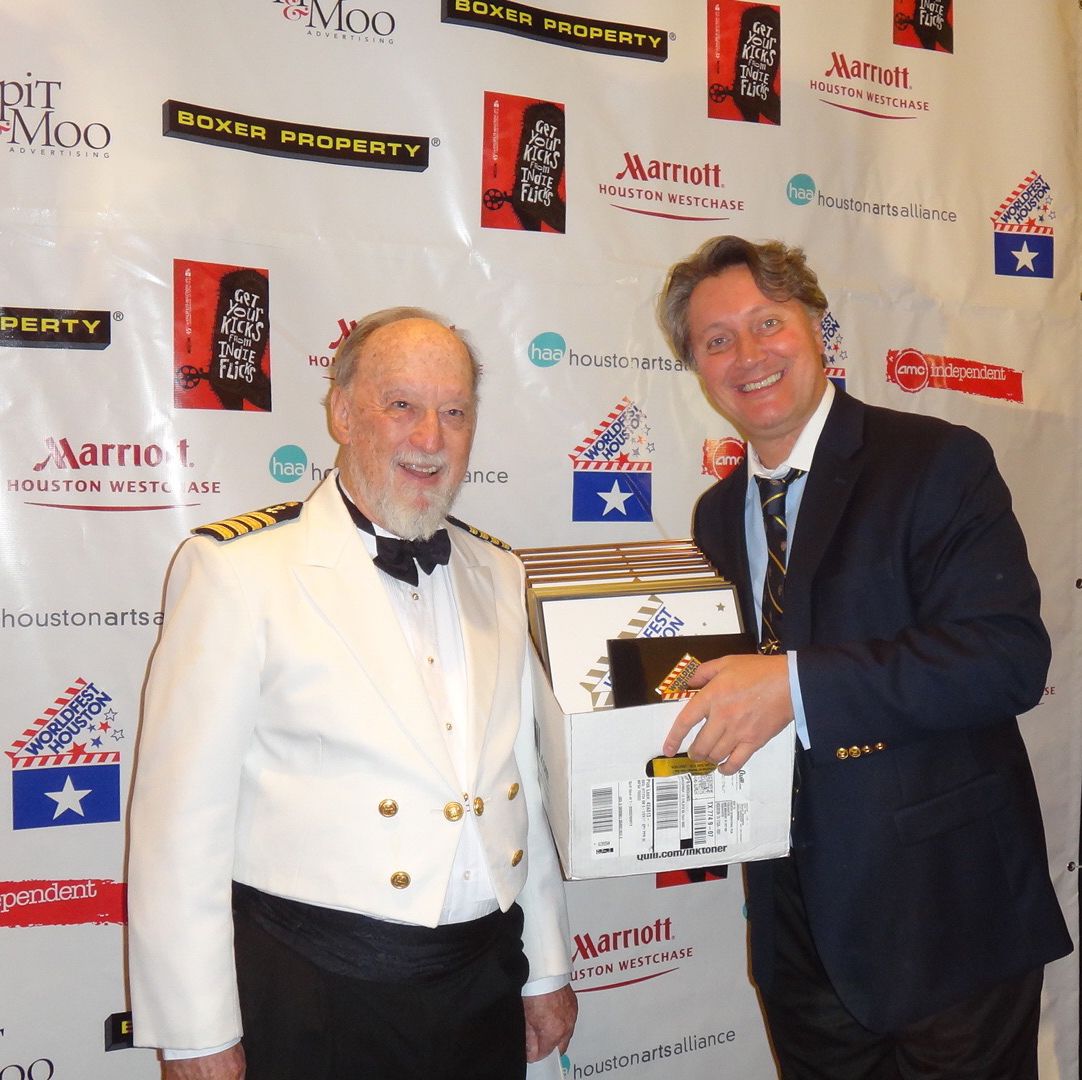
Lastly, please let me close this incredible interview with a few sentences about Nikola’s company – iFilms which is a multi-award winning film production company located in Corpus Christi, Texas – which offers pre/post film & video production, 2D / 3D animation, visual effects & video game services. His company iFilms has the skills and expertise to develop an original idea and carry it through to completion. His facility creates masterful, quality, award-winning feature films, documentaries, commercials, corporate movies, music videos, technological films, educational films, video games, performance videos, event promotions and public service announcements.


